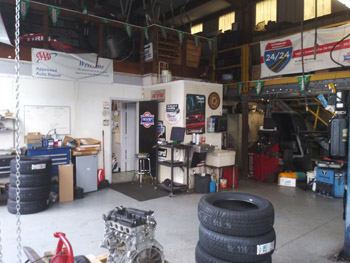All Categories
Featured

Your vehicle's engine is the heart of your car, and keeping it in top problem is necessary for ideal performance and durability. Routine engine tune-ups are a wonderful means to keep your auto's health and wellness, boost gas effectiveness, and stay clear of expensive fixings later on. Whether you're a cars and truck fanatic or a person that simply desires to keep their lorry running smoothly, these engine tune-up tips will assist you get the most out of your auto.
- Change Spark Plugs. Spark plugs play an essential function in starting your engine and making certain smooth combustion. Gradually, ignition system can end up being filthy or worn out, resulting in misfires, lowered fuel performance, and harsh idling.
Throughout an engine tune-up, inspect and change your stimulate plugs if needed. Many lorries require brand-new stimulate plugs every 30,000 to 100,000 miles, depending upon the type. Regularly replacing trigger plugs ensures appropriate ignition and optimum engine performance.
- Examine and Tidy the Air Filter. The air filter avoids dust, dirt, and particles from entering your engine. A clogged up or filthy air filter restricts airflow, causing your engine to work more difficult and melt more fuel.
Inspect your air filter throughout a tune-up and replace it if it's unclean. In dusty settings or locations with hefty air pollution, you may require to alter the air filter more regularly. A clean air filter can improve gas effectiveness and extend the life of your engine.
- Evaluate and Change Belts and Tubes. Belts and hose pipes are vital for different engine features, such as powering the alternator, water pump, and a/c system. With time, these parts can break, battle royal, or wear out, potentially bring about malfunctions.
During a tune-up, check belts and hose pipes for signs of wear and replace them if needed. Changing these components proactively can save you from expensive repair work and stop unanticipated failings.
- Clean the Fuel System. Your gas system, including the gas injectors and gas lines, can collect dust and carbon deposits gradually, reducing engine performance. Cleaning the gas system during a tune-up assists enhance efficiency and fuel economic situation.
You can utilize a gas system cleaner or have a specialist mechanic do an extra comprehensive cleaning. This action is particularly important for older lorries or cars that regularly drive in stop-and-go traffic.
- Inspect the Battery and Charging System. A healthy battery is vital for beginning your engine and powering electrical elements. Throughout a tune-up, examine the battery terminals for rust and ensure the connections are limited.
Inspect the battery's voltage and change it if it reveals signs of weak point. In addition, have the alternator and billing system tested to guarantee your battery remains billed during procedure.
- Change the Engine Oil and Oil Filter. Oil adjustments are a basic component of engine upkeep. Engine oil lubricates relocating parts, lowers rubbing, and assists manage engine temperature level. With time, oil ends up being contaminated and loses its performance.
During a tune-up, replace the engine oil and oil filter to maintain your engine running smoothly. Follow your automobile's maker recommendations for oil kind and adjustment periods.
- Inspect the Air Conditioning System. The cooling system stops your engine from overheating. In time, coolant can weaken or end up being contaminated, decreasing its effectiveness.
Check the coolant degree and problem during a tune-up, and flush and change it if required. Inspect the radiator, water pump, and tubes for leakages or damages. A well-kept cooling system assists your engine operate at the ideal temperature and stops overheating.
- Examine the Ignition System. A faulty ignition system can cause starting concerns and lowered engine efficiency. Throughout a tune-up, inspect the ignition coils, supplier cap, and blades (if suitable) Replace any type of elements that reveal signs of wear or damage to make certain smooth and reputable engine procedure.
- Listen for Unusual Noises. Throughout a tune-up, seize the day to listen for any type of uncommon engine sounds, such as knocking, ticking, or hissing. These noises can show underlying problems, such as valve troubles, loose components, or exhaust leakages. Resolving these problems early can protect against more comprehensive damages.
- Usage Top Quality Parts and Fluids. When doing an engine tune-up, constantly make use of top notch components and fluids that fulfill your lorry manufacturer's specifications. Cheap or inaccurate parts can jeopardize your engine's performance and integrity.
Conclusion: A Well-Tuned Engine is Trick to Longevity. Normal engine tune-ups are important for preserving your car's efficiency, effectiveness, and dependability. By changing used elements, cleansing vital systems, and attending to possible issues, you can maintain your engine running smoothly for several years ahead. Whether you're doing it yourself or counting on a trusted mechanic, purchasing tune-ups is a smart way to secure your car and take pleasure in a much safer, smoother adventure.
Latest Posts
Montana Fencing-- Your Partner for Garden, Farm & Ranch Fencing
Raise Your Property with Decorative Iron Fence
The Deauville Inn: A Bayside Tradition
